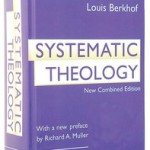There are many things worthy of commendation about Dr. Wayne Grudem’s Systematic Theology book and its 2nd edition, recently published. However, I cannot recommend it to others. Craig Carter explains some of the reasons why in this essay: https://credomag.com/article/how-then-shall-we-theologize/
Here are some quotes:
”I am ruthlessly murdering one of the sacred cows of the Enlightenment, which insisted that, above all, the cardinal rule of biblical interpretation is that one must never, under any conditions, approach the text from a position in which the creeds and dogmas of the church shape our hermeneutical presuppositions. They command: ‘Thou must not read churchly dogma into the Bible.’ But this is exactly what we do in the ‘second exegesis.’ And we do so because this ‘churchly dogma’ came from the Bible in the first place and this is what it means to affirm that the Bible is ‘self-interpreting.‘ We take the second step in systematic theology by studying the Bible from the perspective of the creedal confession of the historic Church.”
“I want to suggest that [Grudem’s] method is biblicist, as opposed to contemplative, insofar as he confuses the economy with theology in such a way as to read creatureliness back into God’s eternal being. Historically, orthodox theology struggled to avoid this kind of mistake by means of carefully contemplating what we learn about the being of God from the study of his economic actions before deciding what can legitimately be said about the being of God based on the contemplation of God’s actions in history.”“By rushing in where the fathers feared to tread, Grudem unwittingly attributes creatureliness to God and thus risks lowering God to our level.”
“Grudem’s work [in its methodology] is thus a very conservative example of the liberal project.”
Once again, Craig Carter’s essay can be found here: https://credomag.com/article/how-then-shall-we-theologize/

